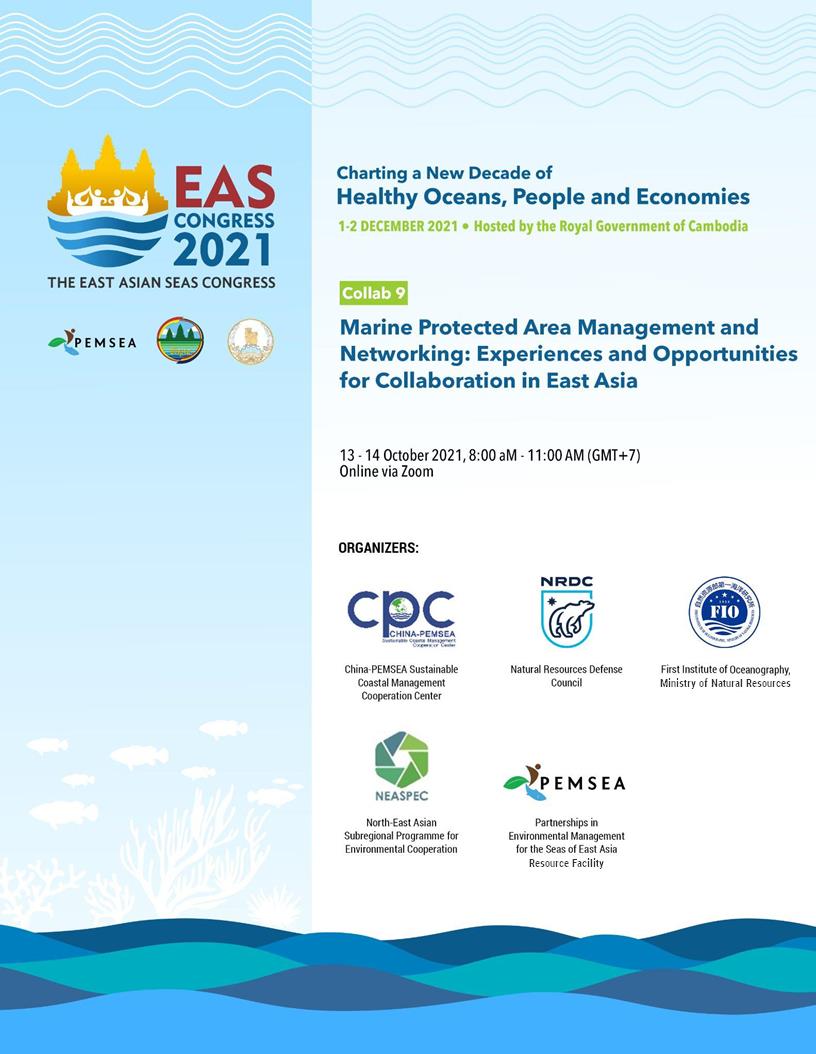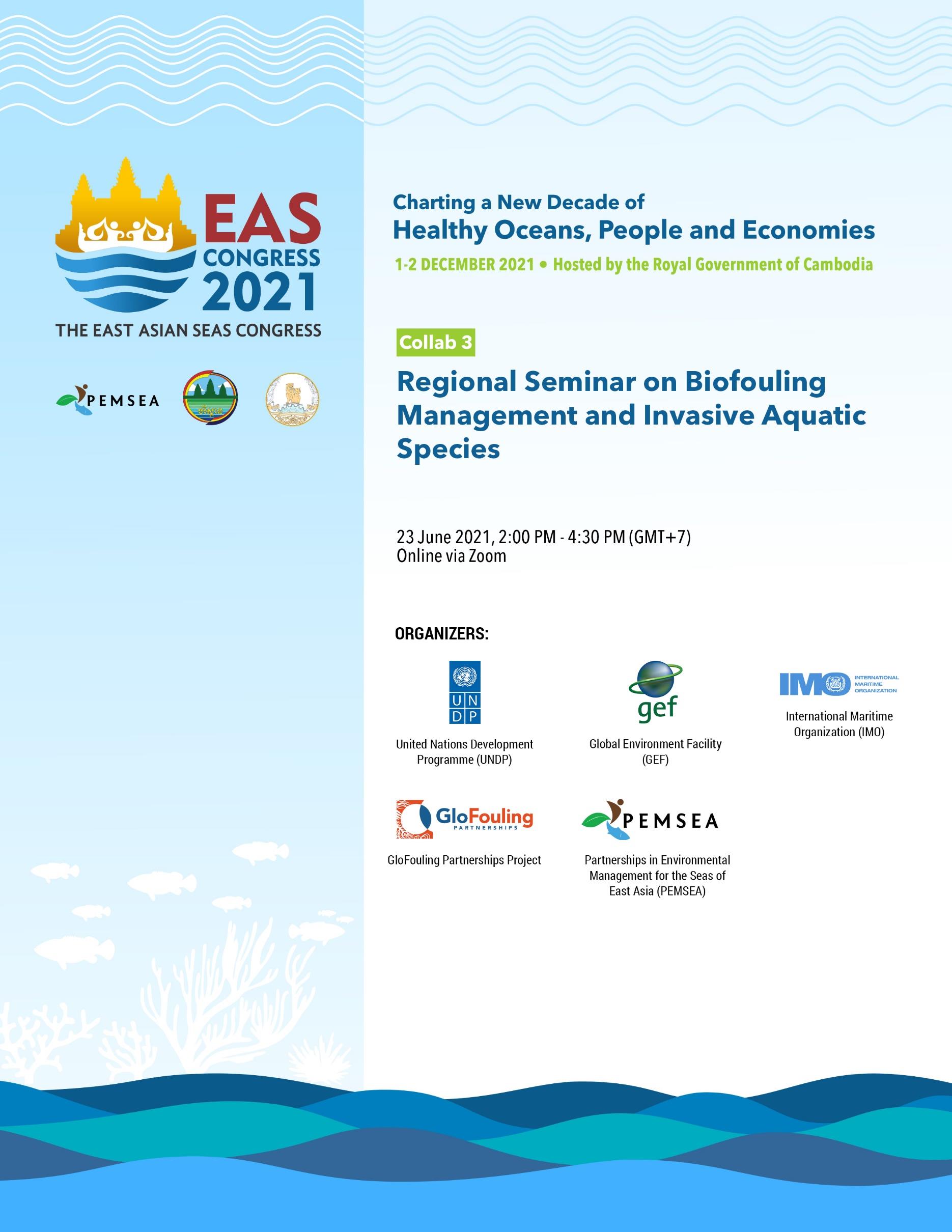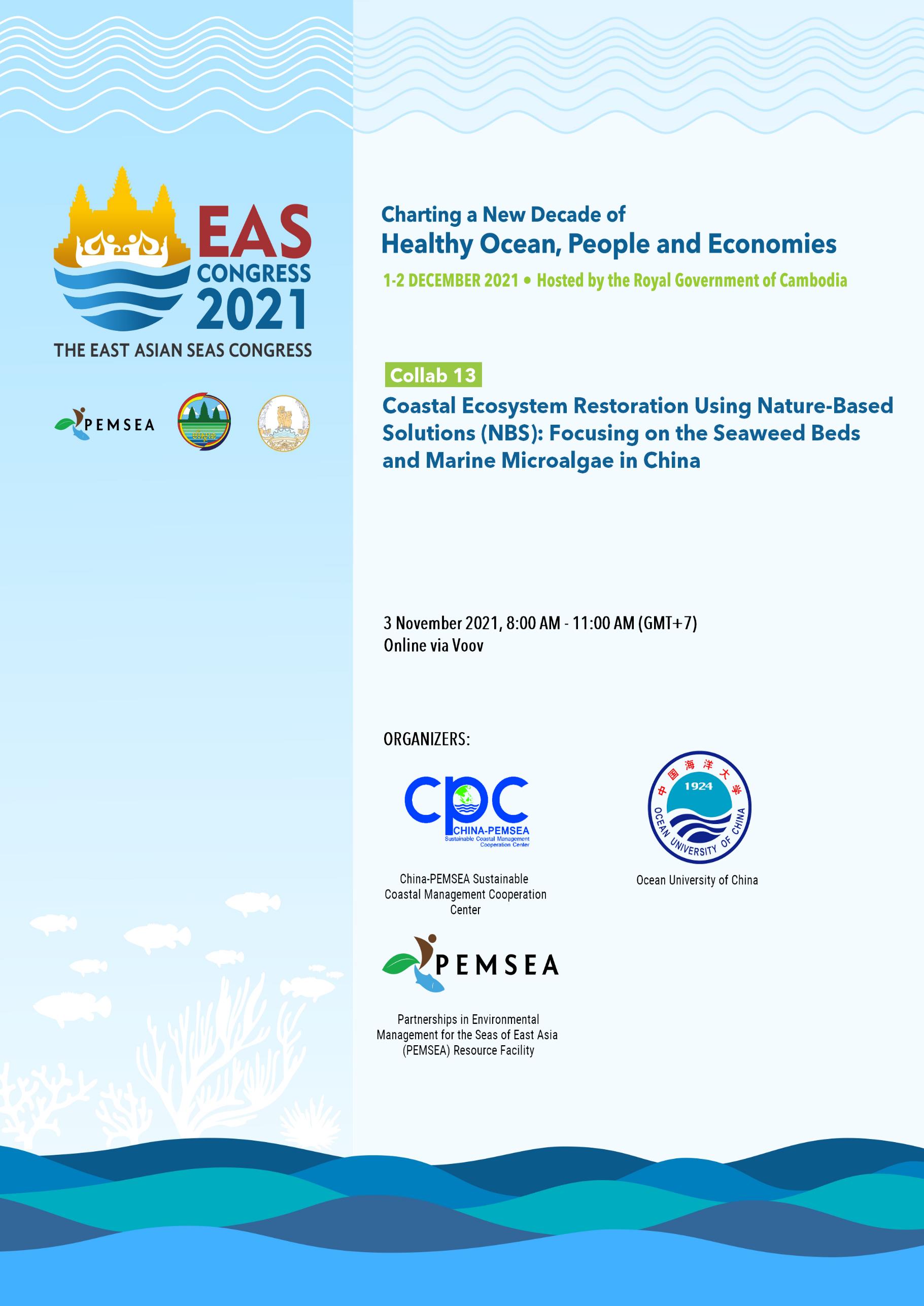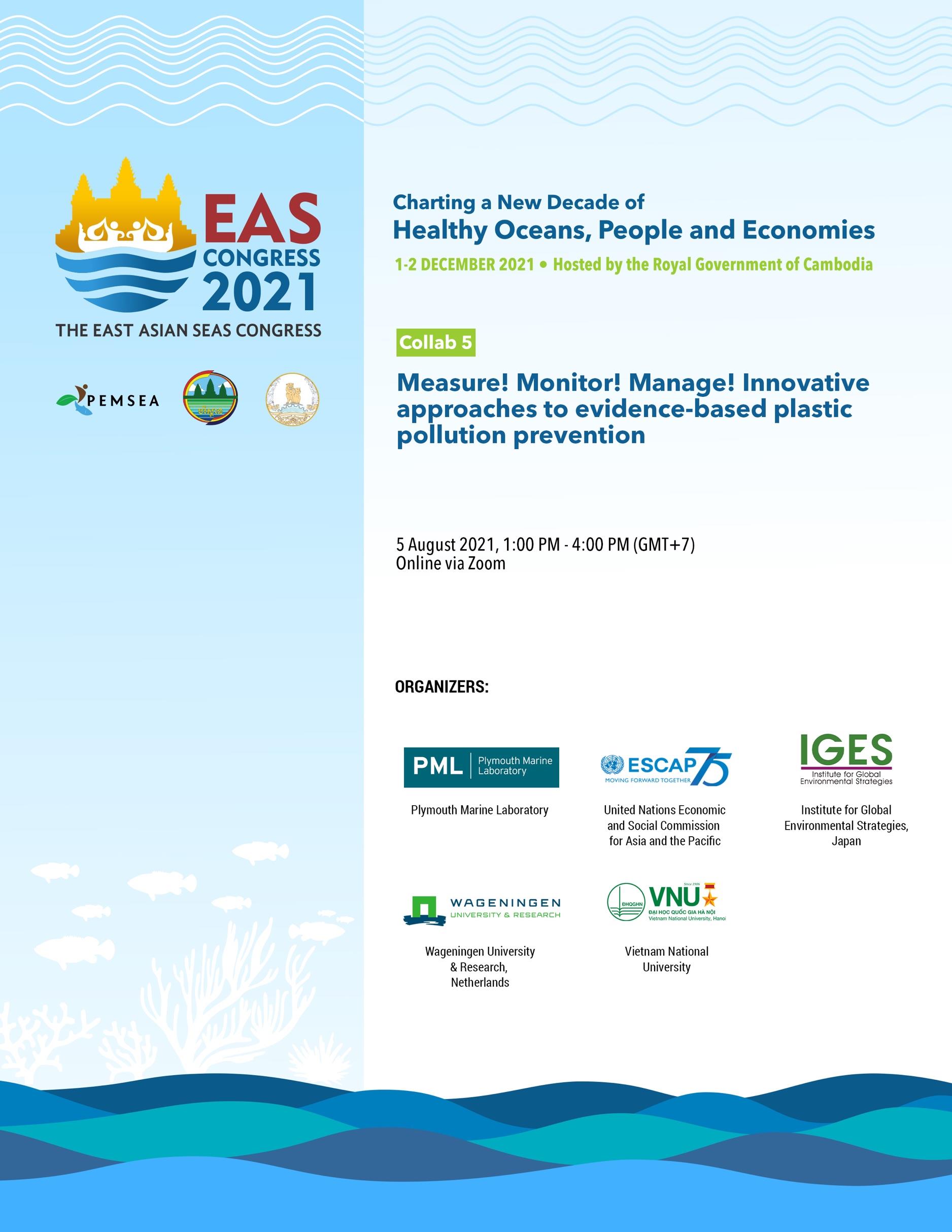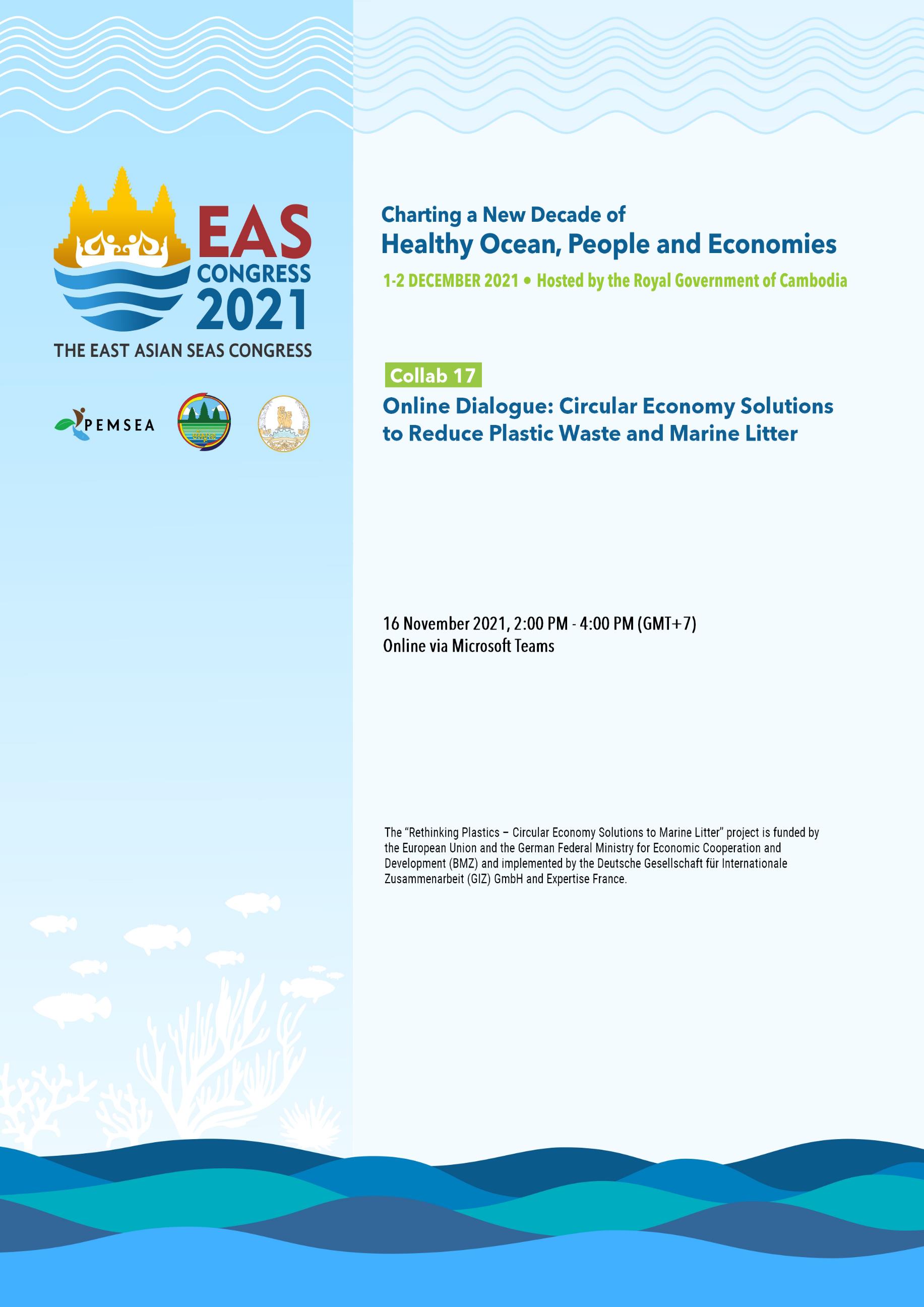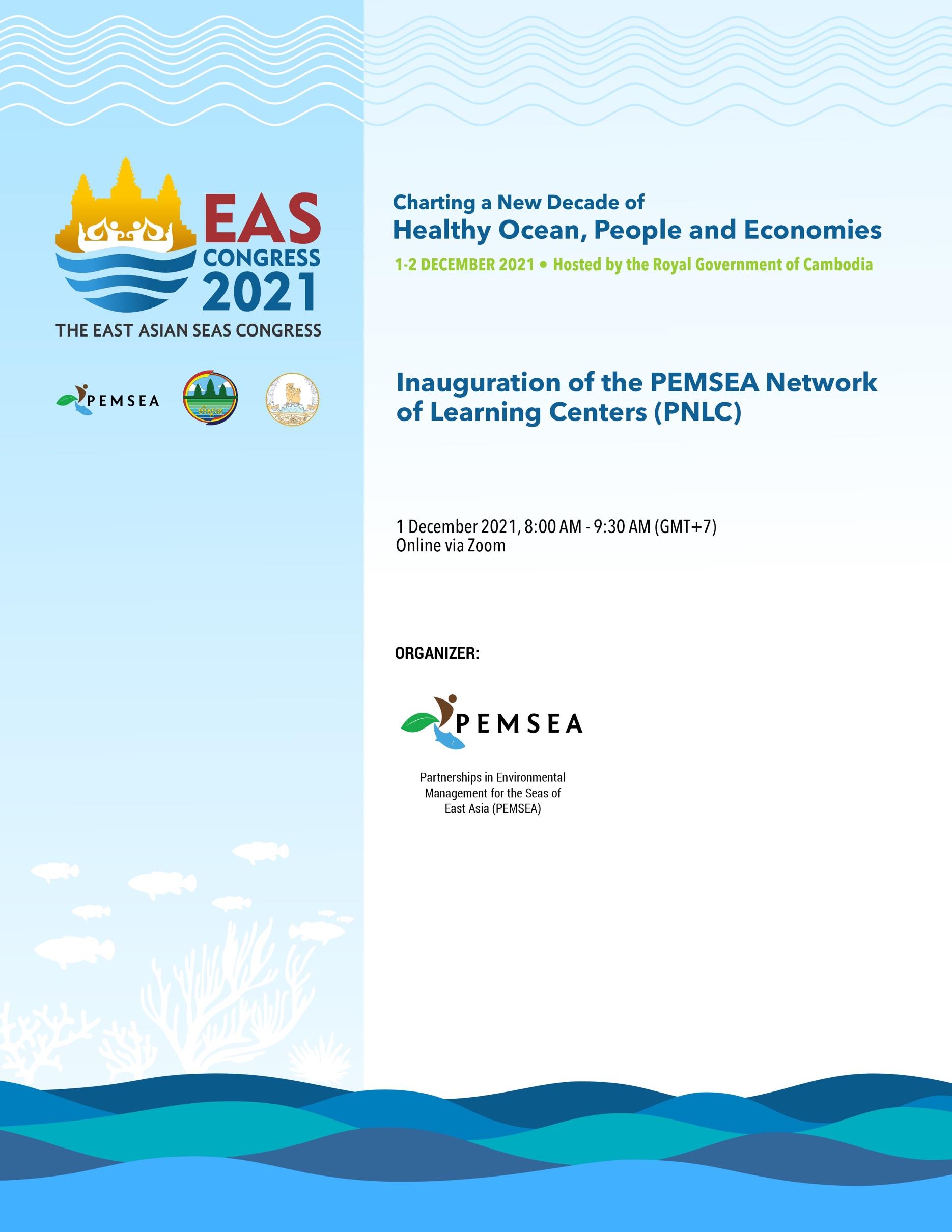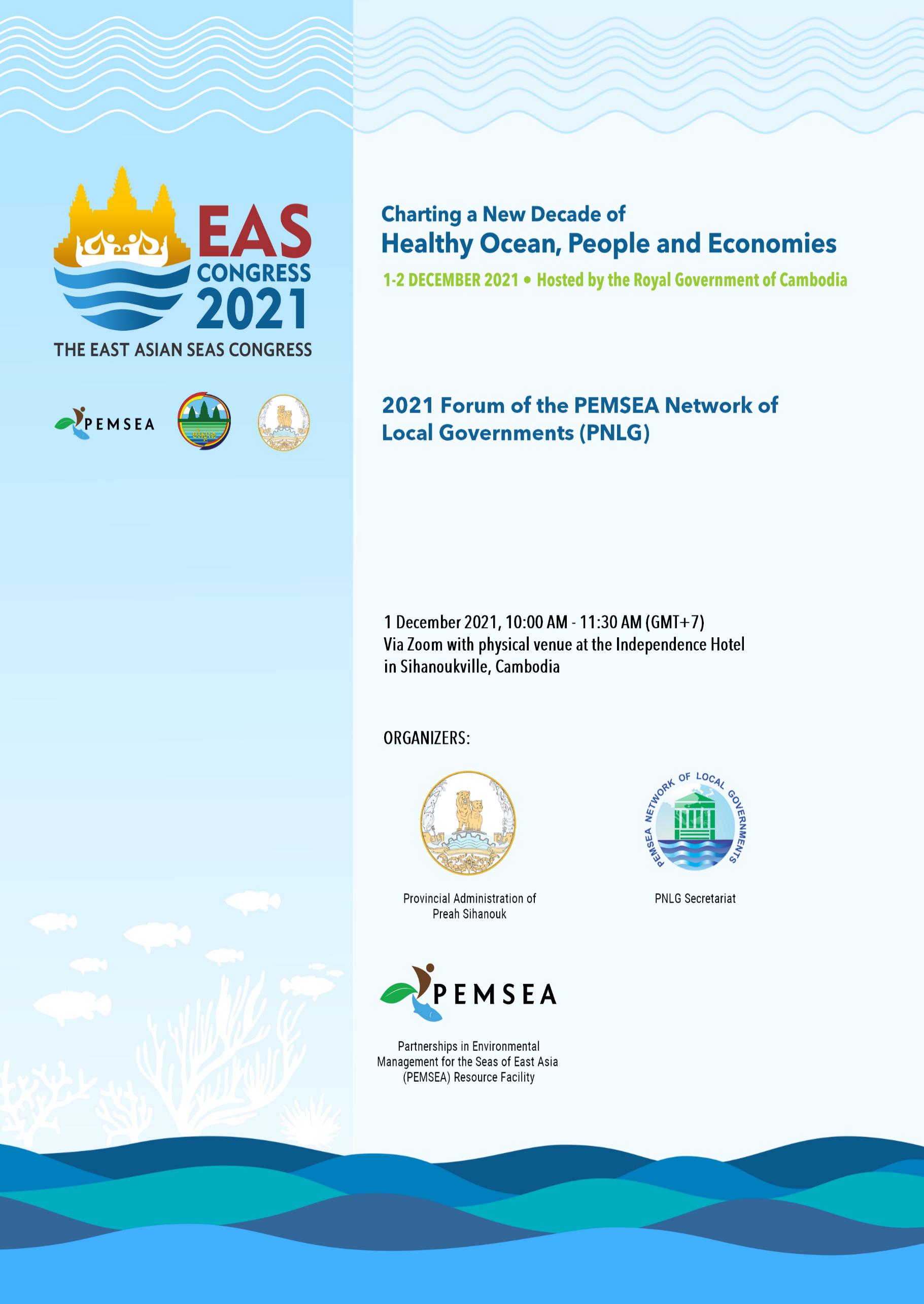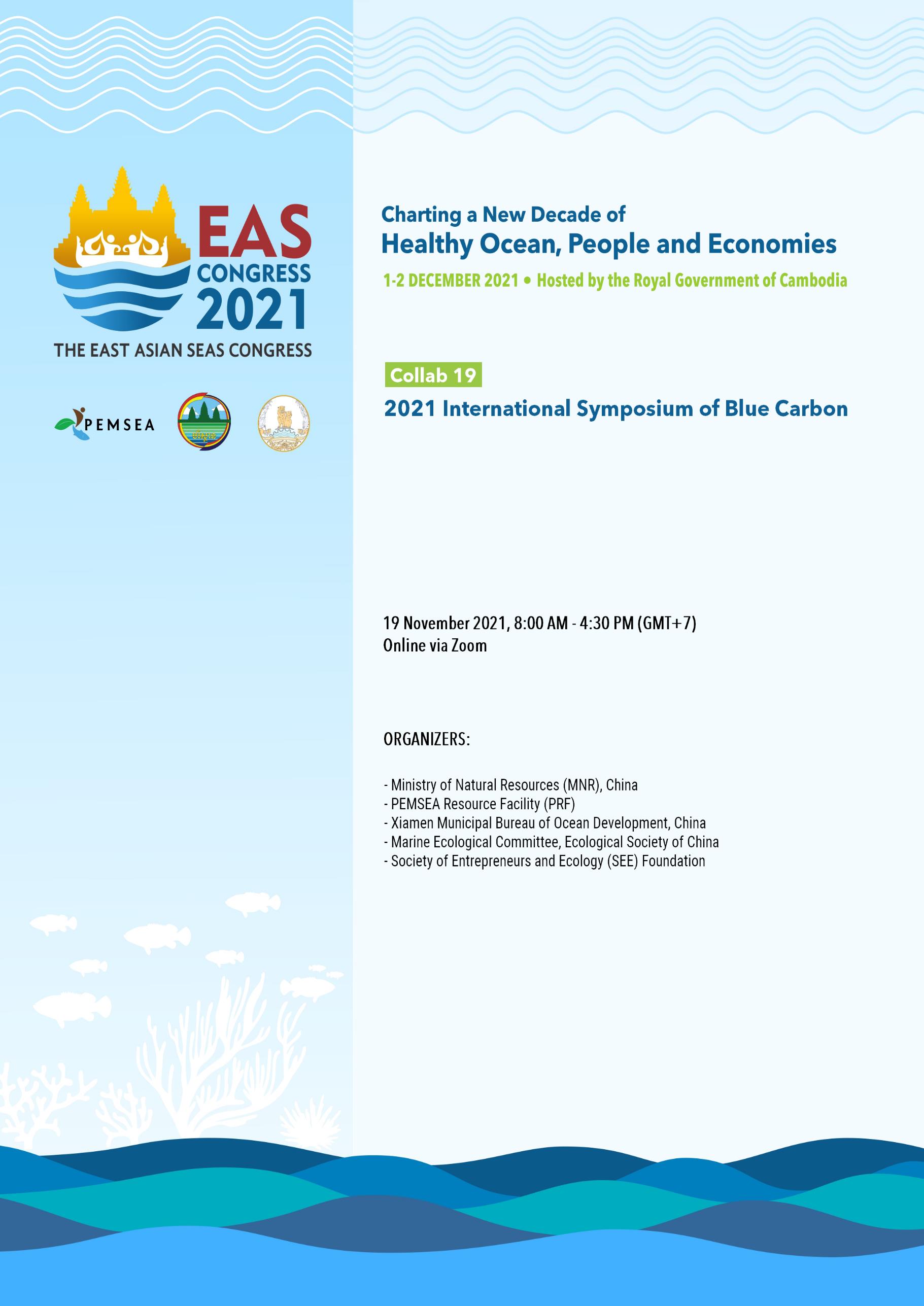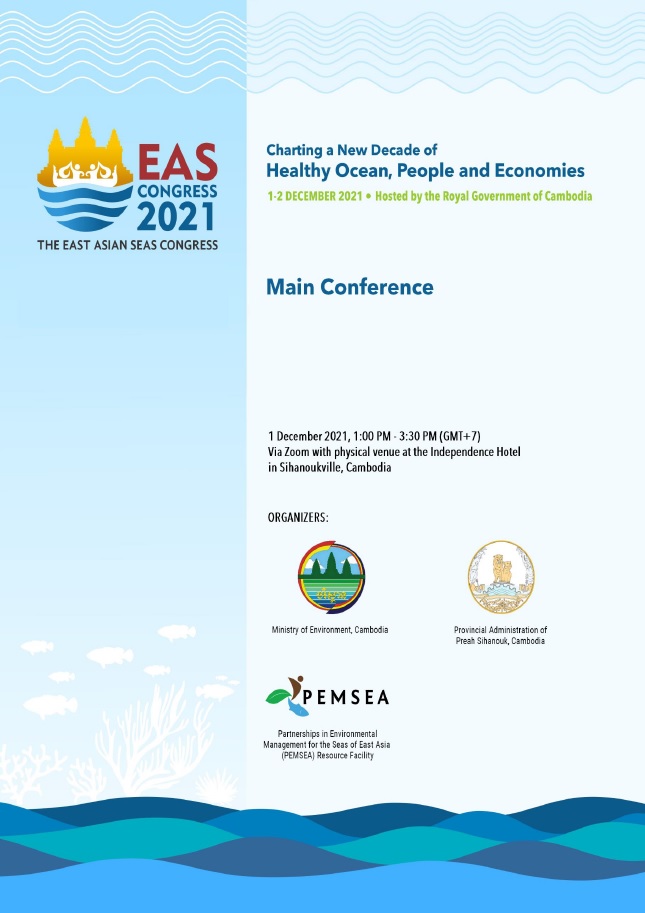
Breadcrumb
-
Collab 9: Marine Protected Area Management and Networking: Experiences and Opportunities for Collaboration in East Asia
Supported by the Natural Resources Defense Council (NRDC), the North-East Asian Subregional Programme for Environmental Cooperation (NEASPEC), and PEMSEA, CPC-led a workshop themed “MPA Management and networking: experiences and opportunities for collaboration in East Asia”, conducted on 13-14 October 2021 via a blended online and face-to-face meeting for the local attendees in Penglai District of Yantai City, Shandong Province.
Over one hundred participants from a) 22 Chinese ICM demonstration sites; b) related research institutes, namely the First Institute of Oceanography, MNR, Ocean University of China, and Xiamen University; c) NOAA, NRDC, KOEM, Philippines, NGOs, and local ocean and fisheries government of coastal areas as invited speakers; d) NGOs of NRDC, CI, WWF, China Blue Sustainability Institute, Society of Entrepreneurs and Ecology Beijing, and QINGDAO QINNENG New Energy & Environmental Protection Technology Company. LTD; and e) other international cooperation programs/platforms and marine agencies attended the workshop online and onsite.
The workshop was chaired by Ms. Yue Yao, the project manager of the conservation project of NRDC China on the 13th session and Dr. Zhaohui Zhang, CPC Deputy Director on the 14th session.
-
Collab 3: Regional Seminar on Biofouling Management and Invasive Aquatic Species
The GEF-UNDP-IMO GloFouling Partnerships Project is aimed at catalyzing government action, industry innovation and capacity building in order to reduce the transfer of Invasive Aquatic Species (IAS) from international shipping and other marine sectors in a holistic approach. While the reach is global, all the intended outcomes, outputs and activities are directly geared towards the national and regional levels with a view to improving maritime institutions, technologies and operations as well as achieving improved monitoring and impact mitigation in the participating developing countries.
The Regional Seminar on Biofouling Management and Invasive Aquatic Species was jointly organized by the GloFouling Partnerships Project and the Partnerships in Environmental Management for the Seas of East Asia (PEMSEA) on June 23, 2021 via the Zoom platform to:
● Raise awareness on the issue of minimizing the transfer of invasive aquatic species through biofouling and capacitate government representatives to participate in future meetings and negotiations on the issue;
● Exchange information and knowledge on biofouling management, approaches, best practices and innovation that are currently available in the region;
● Identify existing challenges, knowledge and technical gaps in the region; and
● Examine and consider elements and options for regional cooperation and coordination of biofouling management measures that could feed into a strategy to promote regional harmonization of biofouling management.
The regional seminar served as a preparatory meeting for a regional workshop that will be conducted later in the year with the goal of defining a regional strategy for biofouling management.
-
Collab 13: Coast al Ecosystem Restoration Using Nature based Solutions (NBS): Focusing on the Seaweed Beds and Marine Microalgae in China
Joined by the Ocean University of China (OUC), Shanghai Ocean University and Shantou University and supported by PEMSEA, CPC organized a webinar themed “Coastal Ecosystem Restoration based on Nature-based Solutions (NBS)-focusing on the seaweed beds and marine macroalgae in China” on 3 November 2021, inviting experts from research institutes and universities to share the knowledge and practice in the restoration of seaweed beds and marine macroalgae and carbon sequestration.
This workshop aims to invite Chinese professors and experts specializing in seaweed beds and marine macroalgae to introduce the latest study on the investigation and cultivation of seaweed beds and macroalgae in China, as well as the carbon sequestration efforts of seaweed, thus providing researchers and administrators with precious knowledge and experience sharing opportunities and a platform to seek possible cooperation.
Over 60 participants from PEMSEA, Chinese research institutes and universities, ICM sites, MPAs and NGOs attended the half-day workshop.
The workshop was chaired by Dr. ZHANG Zhaohui, the Deputy Director of CPC.
-
Collab 5: Measure! Monitor! Manage! Innovative Approaches To Evidence-Based Plastic Pollution Prevention
The Measure! Monitor! Manage! session showcased learnings from the Closing the Loop Project, a UNESCAP project implemented with the support of the Government of Japan. It supported theory was examples from real life application, and provided opportunities for the invited participants to share their learning and understandings.
Key points of the session:
• Online learning session hosted by PEMSEA and PML on the UNESCAP Closing the Loop project
• The project seeks Measure and Monitor plastic waste through innovative and smart technologies, and Manage using policy and investment strategies.
• In project areas, a baseline study is undertaken, matched with new monitoring strategies, and city action plans.
• So far, this process has been implemented in Kuala Lumpur (Malaysia), Da Nang (Viet Nam), Surabaya (Indonesia), and Nakhon Si Thammarat (Thailand).
• A free eLearning course has been developed to help build capacity in local government.
-
Collab 17: Online Dialogue: Circular Economy Solutions to Reduce Plastic Waste and Marine Litter
The online dialogue on “Reducing pollution and solid waste” was organized by the project “Rethinking Plastics – Circular Economy Solutions to Marine Litter” and the Biodiversity Management Bureau (BMB) of the Department of Environment and Natural Resources (DENR) of the Philippines. The event, one of the collaboration sessions under the East Asian Seas Congress 2021, was held last 16 November 2021, at 2:00PM to 4:00PM (GMT+7). It aimed to be a platform for sharing a variety of strategies, tools, and lessons learned on circular economy for plastics to prevent and reduce marine litter with the following objectives:
1. To facilitate the knowledge and experience exchange in reducing plastic waste and marine litter among participating countries
2. To identify effective approaches and enabling mechanisms in mainstreaming circular economy and sustainable consumption and production of plastics
-
Inauguration of the PEMSEA Network of Learning Centers (PNLC)
The Inauguration of the PNLC was facilitated by the signing of the network’s Charter that formalized the PNLC and specified the ground rules on membership and identified joint activities and outputs amongst its members as well as options for sustainability and funding support.
Out of 18 PNLC members, 10 institutions signed the PNLC Charter during the event, namely:
1. Burapha University (BUU), Thailand;
2. Cavite State University (CvSU), Philippines;
3. De La Salle Lipa (DLSL), Philippines;
4. Institute for Global Environmental Strategies (IGES), Japan;
5. IPB University – Center for Coastal and Marine Resources Studies (IPB-CCMRS), Indonesia;
6. Oriental University of Timor Leste (UNITAL), Timor-Leste;
7. Royal University of Phnom Penh (RUPP), Cambodia;
8. Universidade Nacional Timor Lorosa’e (UNTL), Timor-Leste;
9. University of the Philippines Visayas (UPV), Philippines; and
10. Xavier University – Ateneo de Cagayan (XU), Philippines.
Other universities that also approved the PNLC Charter (with signatures to follow) include:
1. Kim II Sung University (KISU), DPR Korea;
2. Prince of Songkla University (PSU), Thailand;
3. University of Da Nang, Vietnam; and
4. Xiamen University – Coastal and Ocean Management Institute (XMU-COMI), China.
The inauguration was attended by 86 participants who represented 14 PNLC member institutions from 8 countries; PEMSEA Executive Committee; PEMSEA’s country- and noncountry partners; and other organizations. The event was organized by Partnerships in Environmental Management for the Seas of East Asia (PEMSEA).
-
2021 Forum of the PEMSEA Network of Local Governments (PNLG) “Networking for a New Ocean Decade of Hope”
The 2021 PNLG Forum with the theme “Networking for a New Ocean Decade of Hope” was hosted by the Provincial Administration of Preah Sihanouk (Cambodia) and co-organized by the PNLG Secretariat and PEMSEA Resource Facility (PRF). The forum, which convened PNLG members for a General Assembly, was conducted on 1 December 2021 as part of the East Asian Seas (EAS) Congress 2021 through a blended online approach and face‐to‐face meeting for the PNLG members and observers in Cambodia.
A total of 206 participants attended the Forum, representing:
a) 24 PNLG member local governments from 9 countries, namely Cambodia, China, Indonesia, Malaysia, Japan, Philippines, RO Korea, Timor-Leste, and Viet Nam;
b) 3 PNLG associate members, namely the First Institute of Oceanography (FIO) of the Ministry of Natural Resources (MNR) of China and the Coastal and Ocean Management Institute (COMI) and Fujian Institute for Sustainable Oceans (FISO) of Xiamen University (XMU) in China;
c) guests from PEMSEA’s Executive Committee, PEMSEA country- and non-country partners, PEMSEA Network of Learning Centers (PNLC), other local governments, various national governments, the private sector, and media;
d) the PNLG Secretariat; and e) the PRF.
-
Collab 19: 2021 International Symposium of Blue Carbon
To promote the knowledge and experience sharing of blue carbon science and policy and facilitate the international cooperation of blue carbon research and management under PEMSEA framework, the 2021 International Conference of Blue Carbon will be held in the 19th November 2021 as hybrid meeting using ZOOM portal. The conference is sponsored as a major event of the PEMSEA EAS Congress 2021 and 2021 World Ocean Week in Xiamen.
Themed as Blue carbon ecosystems management for climate change mitigation and adaption, the symposium is designed to get together experts and professional on the study of Blue Carbon to discuss the following topics:
(1) Potential of blue carbon ecosystems for climate action;
(2) Management efforts of coastal blue carbon ecosystem for climate change mitigation and adaption;
(3) Cooperation of blue carbon research and management.
The event was participated by Dr. Aimee Gonzales, Executive Director of PEMSEA, Dr. Emily Pidgeon, co-chair of the Blue Carbon Initiative and Vice President of Ocean Science and Innovation, Conservation International, nearly 300 participants from 21 countries present, including government officials, scholars and NGO representatives concerning Blue Carbon.
-
East Asian Seas (EAS) Congress 2021 “Charting a New Decade of H.O.P.E. (Healthy Ocean, People, and Economies)” Main Conference
Since 2003, the EAS Congress has served as an intellectual marketplace and forum on the sustainable development of the seas of the world's fastest-growing region. This triennial event provides a platform for ministerial and high-level technical discussions along with opportunities for knowledge sharing and networking between different sectors of society from international organizations, multilateral banks, and local governments down to the scientific community, youth sector, private firms, academe, civil society, and other development partners.
The 2021 EAS Congress came at a fitting time as the EAS region goes through a new normal while nearing the completion of the 2018-2022 Implementation Plan (IP) of the Sustainable Development Strategy for the Seas of East Asia (SDS-SEA). Armed with greater public awareness on the links between ocean health and human health, the region is one and aligned with the global recognition to act on pressing socioeconomic, ecological, and climate change issues, and sustain the momentum of building meaningful and transformative solutions for a sustainable ocean-based economy.
